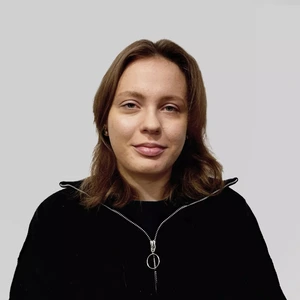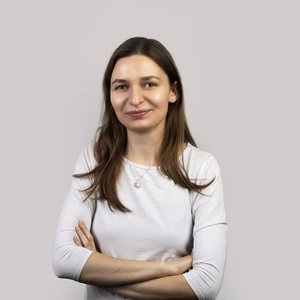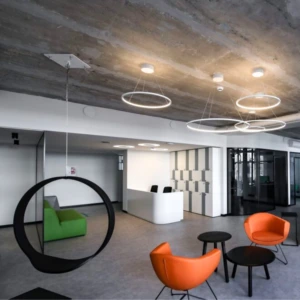The programme is only conducted in Lithuanian language. Entry requirements for this particular programme can be found in the programme description provided in Lithuanian language.
in Lithuanian
Managing the most valuable resource of the 21st century
Information is the backbone of today’s society and information systems have become an integral part of our daily lives. On this study programme, you’ll learn how to develop information systems and databases, analyse business data, automate business processes and work in systems development teams. After choosing a specialisation, you’ll study database management and programming or systems analysis and design. Graduates of this programme will become experts in changing the world of organisational management and data solutions.


During your studies, you will use the most advanced software tools: the business process management system PEGA, the data analysis system MS Power BI, the organisational resource management system Microsoft Dynamics, and the graphical user interface prototyping tool Axure.

You will be able to join a product development project, working in teams, and collaborating with KTU researchers and social partners. Together you will solve current problems and find solutions that will improve your teamwork and project management skills, deepen your professional knowledge and broaden your career opportunities.

The field of information systems is particularly broad, so at the end of your second year, you can choose between two specialisations or create a tailor-made combination of study modules.
You will learn how to design information systems and databases, analyse performance data, manage business processes, and collaborate effectively within systems development teams. Depending on your chosen specialisation, you will either focus on developing programming skills for various information systems or explore business analytics, requirements specification, information systems auditing, and business management systems in greater depth.
Where can you work after graduating from the Information Systems degree programme? Career opportunities are diverse and wide-ranging:
Identifies and specifies requirements for information systems, designs solutions programs various components of systems.
Creates databases tailored to different applications and tasks manages data access rights, ensuring secure and efficient operation of databases.
Coordinates the activities of artificial intelligence agents for modelling and implementation of information systems, ensuring that the solution developed meets the needs of the customer.
| Module name | Credits | Method of organisation |
|---|
| Computer Graphics | 6 | On-campus learning |
| Introduction to Studies of Informatics | 9 | On-campus learning |
| Mathematics 1 | 6 | On-campus learning |
| Fundamentals of Object-Oriented Programming 1 | 9 | On-campus learning |
| Object-Oriented Programming 1 | 9 | On-campus learning |
| Module name | Credits | Method of organisation |
|---|
| Mathematics 2 | 6 | On-campus learning |
| Physics 1 | 6 | On-campus learning |
| The First Principles of Digital Logic | 6 | On-campus learning |
| Media Philosophy | 6 | Blended learning |
| Sustainable Development | 6 | On-campus learning |
| Fundamentals of Object-Oriented Programming 2 | 6 | On-campus learning |
| Object-Oriented Programming 2 | 6 | On-campus learning |
| Module name | Credits | Method of organisation |
|---|
| Academic and Technical Communication in English (Level C1) | 6 | On-campus learning |
| Computer Architecture | 6 | On-campus learning |
| Discrete Structures | 6 | On-campus learning |
| Theory of Probability and Statistics | 6 | On-campus learning |
| Basics of Data Structures | 6 | On-campus learning |
| Data Structures | 6 | On-campus learning |
| Module name | Credits | Method of organisation |
|---|
| Databases | 6 | On-campus learning |
| Design and Analysis of Computer Algorithms | 6 | On-campus learning |
| Operating Systems | 6 | On-campus learning |
| Software Engineering | 6 | On-campus learning |
| Teamwork in Information Systems Projects | 6 | On-campus learning |
| Module name | Credits | Method of organisation |
|---|
| Business Intelligence and Data Mining | 6 | On-campus learning |
| Computer Networks and Internet Technologies | 6 | On-campus learning |
| Fundamentals of Information Systems | 6 | On-campus learning |
| Introduction to Artificial Intelligence | 6 | On-campus learning |
| Framework Driven Development of Information Systems | 6 | On-campus learning |
| Enterprise Management and Resource Planning Systems | 6 | On-campus learning |
| On-campus learning |
| Module name | Credits | Method of organisation |
|---|
| Information Systems Graphical User Interface | 6 | On-campus learning |
| Product Development Project | 12 | On-campus learning |
| Business Process Digitalization | 6 | On-campus learning |
| Database Development and Administration | 6 | On-campus learning |
| Business Process Management and Modernization | 6 | On-campus learning |
| Information Systems Requirements Analysis and Specification | 6 | On-campus learning |
| On-campus learning |
| Module name | Credits | Method of organisation |
|---|
| Information System Design and CASE Technology | 6 | On-campus learning |
| Optional Subjects 2026 IF | 6 |
| Engineering Economics | 6 | On-campus learning |
| Sustainable Human Development | 6 | On-campus learning |
| Debugging of Information Systems Software | 3 | On-campus learning |
| Development and Deployment of Network Based Services | 6 | On-campus learning |
| Distributed Databases | 3 | On-campus learning |
| Framework Driven Development of Information Systems | 6 | On-campus learning |
| Information Systems Audit and Control | 3 | On-campus learning |
| Service Architecture Based Information Systems | 3 | On-campus learning |
| On-campus learning |
| Module name | Credits | Method of organisation |
|---|
| Bachelor’s Degree Final Project | 15 | On-campus learning |
| Professional Internship | 15 | On-campus learning |
The programme is only conducted in Lithuanian language. Entry requirements for this particular programme can be found in the programme description provided in Lithuanian language.
in Lithuanian

This study programme offers a wide range of knowledge and career opportunities. You can develop your skills in programming, data analysis and system design and put them into practice. The most memorable thing was the friendly lecturers who made the study process an interesting and meaningful experience.

One of the specialisations of the Information Systems programme focuses on the training of analysts, who analyse a company’s processes, decide how the IT system that accelerates them should work and describe the system using different methods. I feel I have a strong background in systems design and I found my first job very quickly. I have also developed my knowledge through the GIFTed talent development programme and through Erasmus+: studying in Austria and doing an internship in Spain.
Graduates of KTU are welcome in any company that develops complex information systems. This speciality will remain in high demand, as companies continue to seek professionals who can effectively computerise and automate processes. KTU is particularly strong in the fields of exact and technological sciences, and graduates have excellent theoretical and practical knowledge.

Talk to us, study with us:
K. Donelaičio St. 73, LT-44249 Kaunas
phone +370 679 44 555
email studijos@ktu.lt
Faculty of Informatics
XI Chamber
Studentų St. 50, LT-51368 Kaunas
email if@ktu.lt
 virtual tour
virtual tour